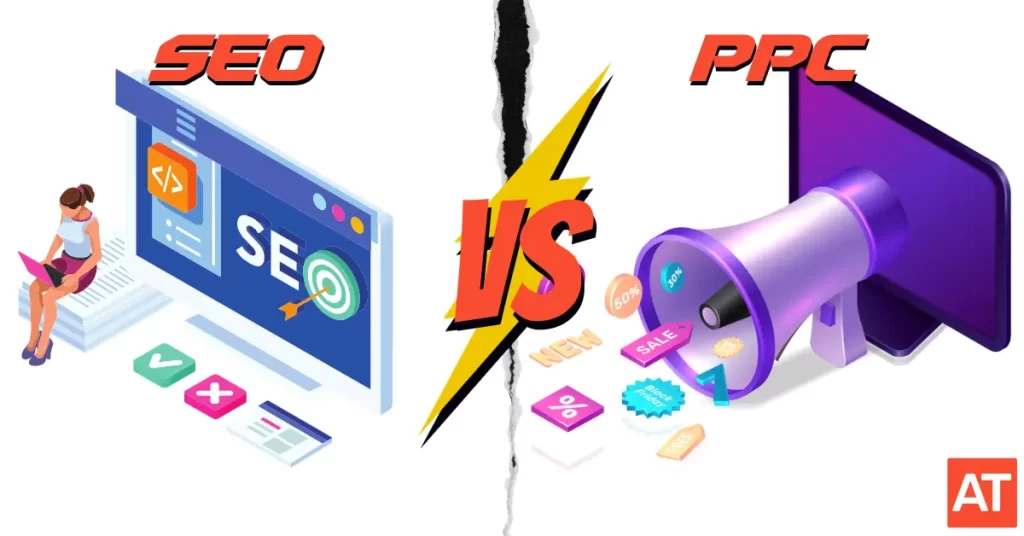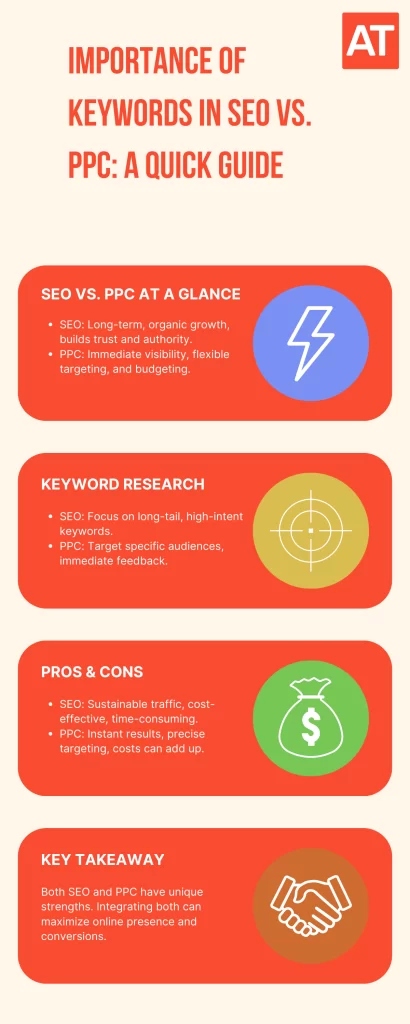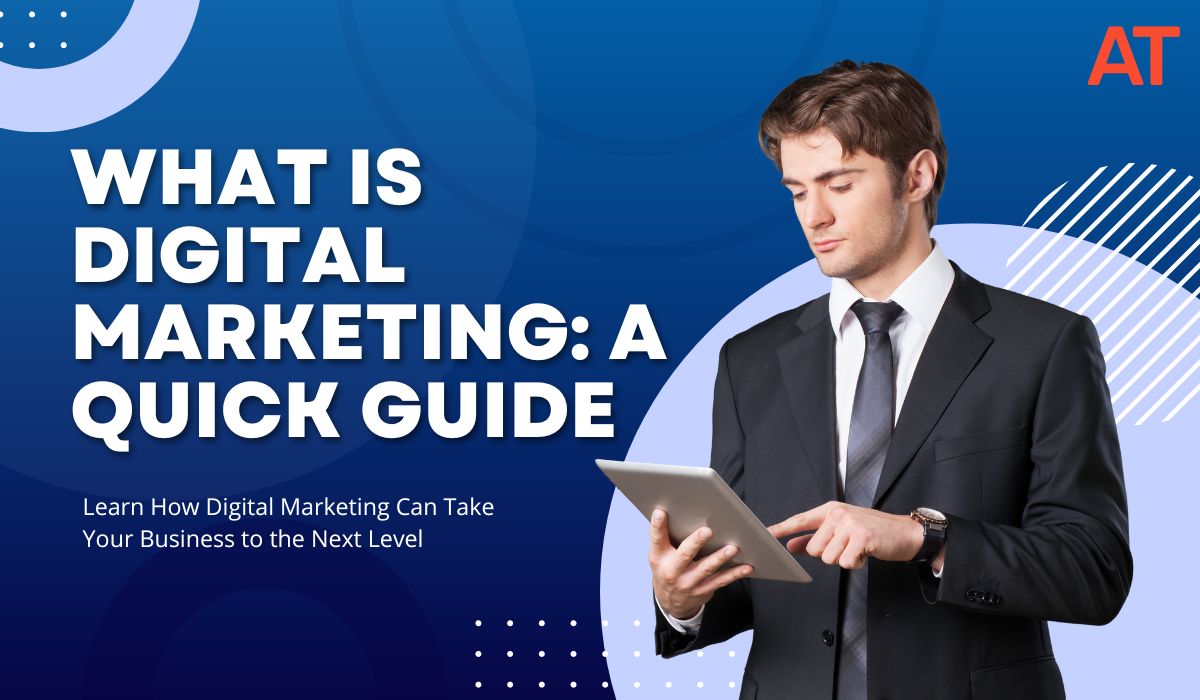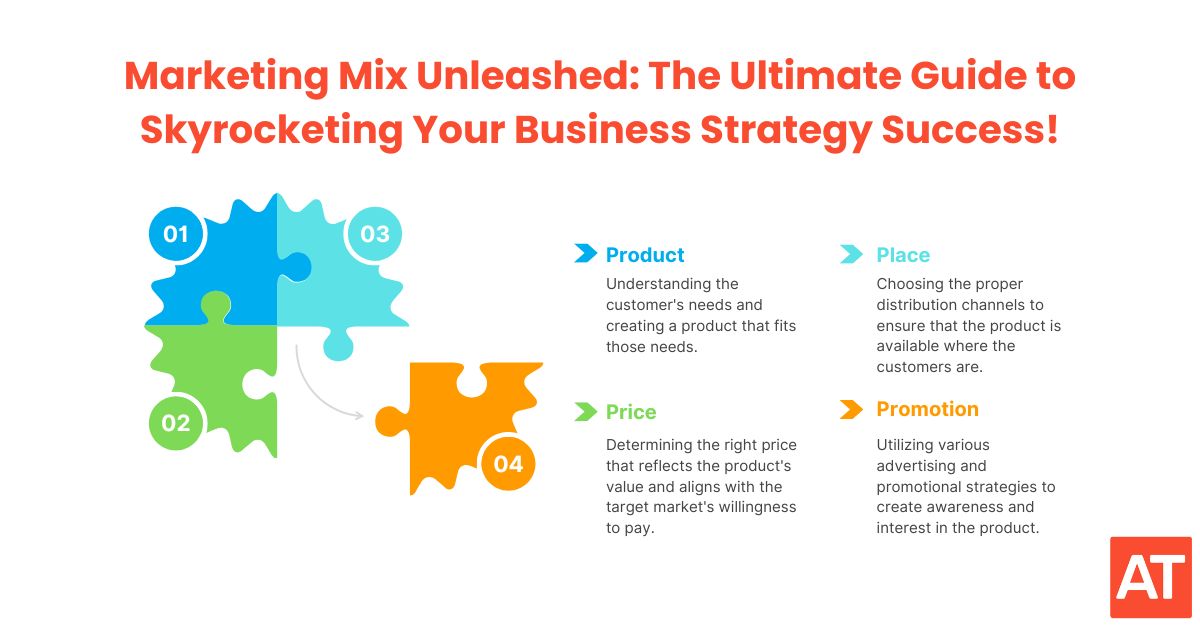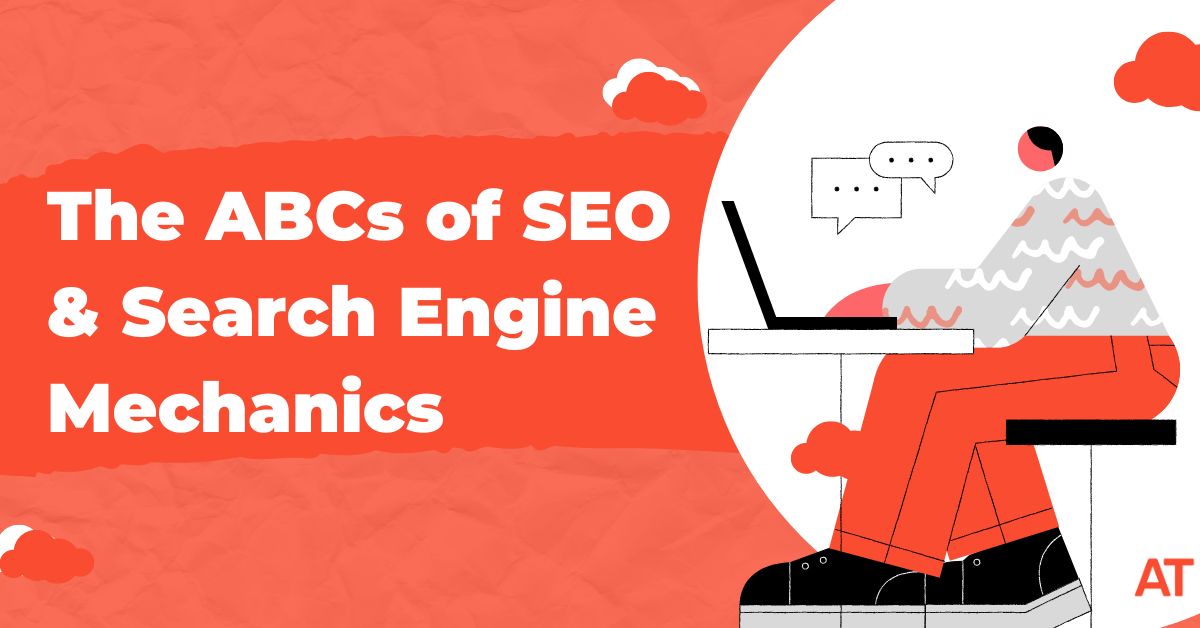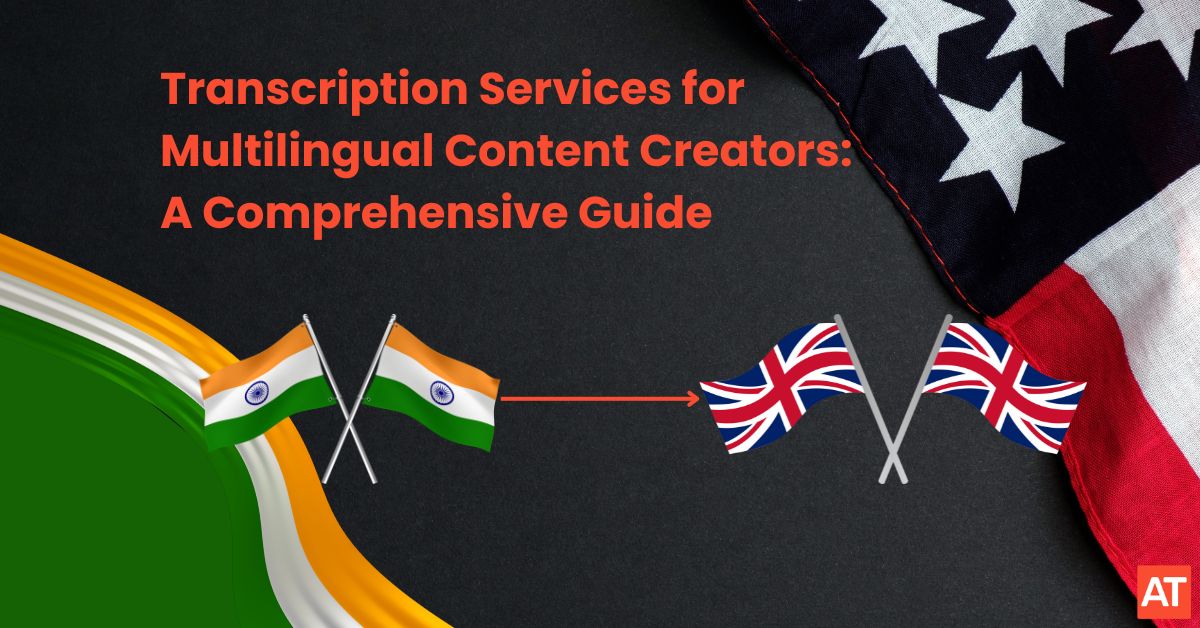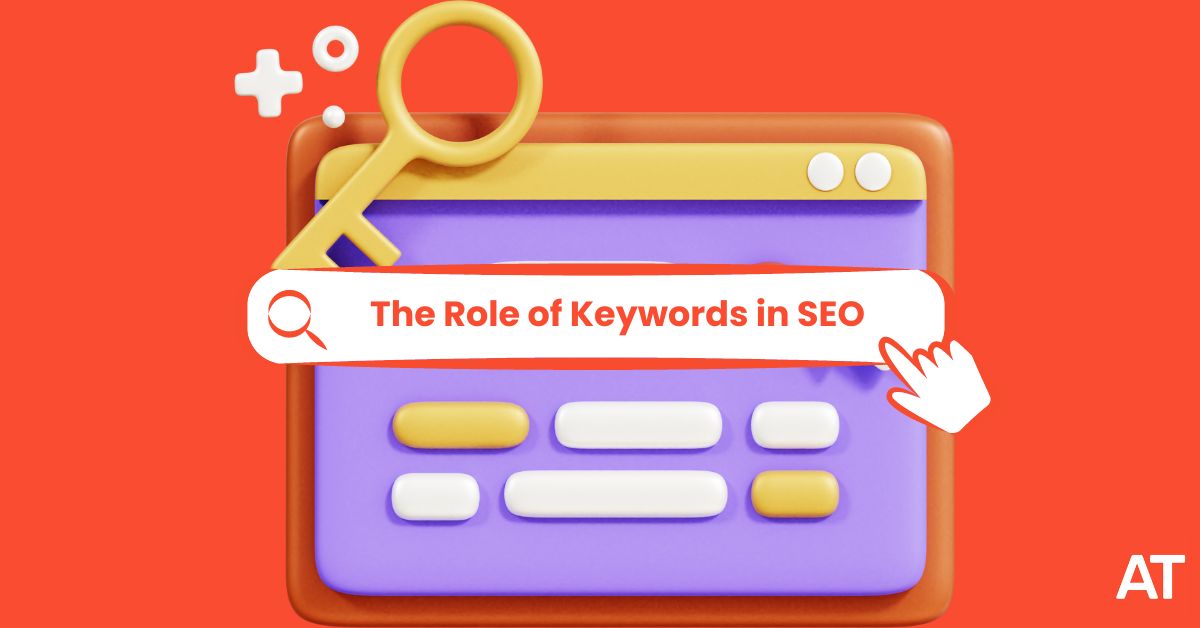“Importance of Keywords in SEO vs. PPC” – a phrase that has become the epicenter of many digital marketing debates. But why is it so pivotal? Imagine standing at a crossroads, with one path leading to the organic allure of SEO and the other to the instant gratification of PPC.
Which one do you choose? Or do you pave a new path that combines the best of both worlds? As we go deeper into this issue, we’ll uncover the intricacies of both tactics, allowing you to make more informed business judgments.
And if you’re wondering how Anfinit Technologies can guide you on this journey, rest assured, we’ve got the expertise and experience to illuminate the way. So, are you ready to embark on this enlightening expedition? Let’s dive in!
Table of Contents
ToggleThe Core Difference Between SEO and PPC in Digital Marketing
In the vast digital marketing realm, SEO (Search Engine Optimization) and PPC (Pay-Per-Click) stand as two towering pillars. Understanding their distinctions, however, is critical for any company wanting to develop a solid online presence.
SEO is all about playing the long game. Improving your content and website to appear higher in search engine results pages is called SEO (search engine optimization). The goal? To increase organic traffic, which is free.
On the other hand, PPC is the sprinter in the digital marketing race. It’s about creating ads and paying for each click they receive. Think of it as buying visits to your site rather than earning them organically. A friend in the e-commerce sector once shared how a well-timed PPC campaign during the holiday season led to record-breaking sales in just a week!
Both techniques attempt to attract visitors to your website, but they do so in quite different ways. SEO focuses on earning traffic through unpaid or free listings, whereas PPC revolves around buying traffic through paid search listings.
What is SEO?
Search Engine Optimization, or SEO, is the base of organic digital marketing methods. It is the process of improving the visibility of your website and its content on search engines. But what does this entail?
- Keyword Research: This is the starting point for everything. Choosing the correct keywords for your business makes sure your content corresponds to what consumers are looking for. Remember, it’s not just about traffic; it’s about attracting the right traffic.
- On-Page SEO: Once you’ve identified your target keywords, it’s time to incorporate them into your content, meta descriptions, and title tags. But it’s not just about keyword stuffing; it’s about creating valuable content that search engines love.
- Off-page SEO: This involves actions taken outside of your website to improve its ranking. Think backlinks from reputable sites, social media activity, and other external signals pointing to your site.
- Technical SEO: Behind every great website is a robust technical foundation. This encompasses site speed, mobile optimization, site structure, and more.
Did you know? A study by Akamai showed that a delay of just a second in page load time can lead to a 26% reduction in conversions!
By understanding these characteristics, you can improve your site’s ranking on search engine result pages, driving organic traffic and building authority in your niche.
How to Use Keywords for SEO
Harnessing the power of keywords in your SEO strategy is akin to finding the right ingredients for a gourmet dish. It’s not just about quantity but quality and relevance.
- Understanding User Intent: Before sprinkling keywords throughout your content, you must understand what your audience is searching for. Are they looking for information, or are they ready to purchase? Tailoring your content to match user intent can significantly improve your site’s relevance and ranking.
- Long-Tail vs. Short-Tail Keywords: Short-tail keywords like “shoes” might have high search volumes but are also highly competitive. On the other hand, long-tail keywords like “men’s leather shoes for winter” might have lower search volumes but can attract a more targeted audience.
- Keyword Placement: It’s not just about including keywords, but where you place them. Ensure they appear in your titles, headers, meta descriptions, and throughout your content. But remember, always prioritize readability over keyword density. Keyword stuffing is a big red flag.
- Avoid Keyword Stuffing: Search engines have become more competent. They can detect when you’re overloading your content with keywords unnaturally. This might result in penalties and a drop in ranking. Instead, concentrate on crafting valuable content that combines your keywords naturally.
- Use of Semantic Keywords: These are variations or related terms to your primary keyword. For instance, if your main keyword is “digital marketing,” semantic keywords could include “online advertising,” “content marketing,” or “SEO.”
- Track and Adjust: SEO isn’t a one-time task. It’s essential to monitor your keyword performance and adjust your strategy accordingly. Google Analytics, for example, may reveal which keywords increase traffic and conversions.
You can ensure that your content relates to your target audience and search engines by successfully using keywords in your SEO plan.
What is PPC?
Pay-per-click, or PPC, is an aspect of digital advertising where you pay some fee each time someone clicks on your ad. It’s a direct approach to buying visits to your site rather than attracting them organically through SEO. But how does it work?
- Keyword Research for PPC: Like SEO, everything starts with selecting the right keywords. However, for PPC, you’re bidding on these keywords. The idea is to choose keywords that potential buyers may use to search for your products or services.
- Bid Setting: Once you’ve identified your target keywords, you decide how much you’re willing to pay for a click on your ad. This is your bid. The higher your bid, the better your ad placement might be.
- Ad Creation: Crafting a compelling ad is crucial. It should be keyword-relevant, have a clear call-to-action, and connect to a landing page that fulfills the ad’s promise.
- Audience Targeting: PPC platforms, like Google Ads, help you to target specific user demographics, locations, and even behaviors. This will increase the chances of conversion by displaying your advertisements to people more likely to purchase.
- Monitoring and Optimization: Running a PPC campaign isn’t a set-it-and-forget-it task. Regularly monitoring your campaign’s performance and making adjustments can optimize your ROI.
What is PPC Keyword Research?
Diving deeper into the world of PPC, it becomes evident that keyword research is the cornerstone of any successful campaign. But how does it differ from SEO keyword research?
- Immediate Results: Unlike SEO, where you might have to wait weeks or months to see the fruits of your labor, PPC keyword research can yield immediate results. If you bid on the right keywords and craft compelling ads, you can start driving traffic to your site instantly.
- Cost Implications: Every keyword in PPC has a cost associated with it. This cost varies based on the keyword’s competitiveness and its search volume. It’s essential to balance choosing high-volume keywords and those that won’t break the bank.
- Understanding Keyword Intent for PPC: As with SEO, understanding the searcher’s intent is crucial. However, with PPC, you’re often targeting users further down the sales funnel. This means focusing on high-intent keywords that indicate a readiness to purchase.
Example of a Business Offered Translation Services: Consider a business offering translation services. While they might target broader keywords like “translation services” in their SEO efforts, their PPC campaign might focus on high-intent keywords like “urgent document translation” or “professional Spanish to English translation.”
By honing in on the right keywords for your PPC campaigns, you can ensure that your ads reach the right audience at the right time, maximizing your chances of conversion.
How Do You Define the Phrases Typed Into Google Ads’ Search Bar?
Understanding user intent is crucial when setting up a PPC campaign. Users’ phrases entered into the search bar can provide invaluable insights into their needs and desires. Here’s how to interpret and leverage these search queries:
- Broad Match Keywords: These general terms can trigger your ads for various search queries. For instance, if you bid on the keyword “shoes,” your ad might appear for searches like “running shoes,” “formal shoes,” or even “shoe repair.” Please utilize them without using quotation marks.
- Phrase Match Keywords: These are more specific and will trigger your ads only when the exact phrase is part of the search query. Bidding on the phrase “running shoes” will show your ads for “best running shoes” or “running shoes sale” but not for “shoes for running.” Please utilize them with quotation marks.
- Exact Match Keywords: The ads are triggered only when someone searches for the exact term. Bidding on [running shoes] will only display your ad for the search “running shoes.”
- Negative Keywords: These are terms you don’t want your ads to appear for. If you’re selling new shoes, you might add “repair” as a negative keyword to ensure your ad doesn’t appear for “shoe repair.” You’ll write it in like this –repair.
- Understanding User Intent: It’s not just about the keywords but the intent behind them. Someone searching for “how to tie shoe laces” is likely looking for information, not to make a purchase. Tailoring your PPC ads to match user intent can significantly improve conversion rates.
A quick tip: Regularly review the search terms report in Google Ads. It shows the actual queries people typed in that triggered your ads. This can offer insights into potential new keywords or negative keywords to add.
Importance of Keyword Intent in Digital Marketing
In digital marketing, understanding keyword intent is akin to reading the minds of your potential customers. It’s about discerning what they genuinely seek when they type a query into a search engine.
- Paying For High-Intent Traffic in PPC: In the world of PPC, targeting high-intent keywords can be more cost-effective. These keywords indicate a user’s readiness to take action, be it making a purchase, signing up for a newsletter, or requesting a quote. For instance, someone searching for “buy leather boots online” has a clear purchase intent compared to someone just searching for “leather boots.”
- High-Intent vs. Low-Intent Keywords: While high-intent keywords are golden for conversions, low-intent keywords are more exploratory. Many people use them to gather information or research a particular topic. For example, “how to care for leather boots” is a low-intent keyword, whereas “best leather boot brands” leans towards a higher intent.
- Balancing SEO and PPC with Keyword Intent: When crafting your SEO and PPC strategies, it’s essential to strike a balance. Use SEO to target broader, informational keywords and establish authority while leveraging PPC for those high-intent keywords that can drive conversions.
A friend who runs an online jewelry store once shared how understanding keyword intent transformed her business. By focusing her PPC efforts on high-intent keywords like “buy diamond engagement ring,” she saw a significant boost in sales. At the same time, her SEO-focused blog articles on “how to choose an engagement ring” helped establish her brand as an authority in the niche.
Keywords in SEO vs. PPC: Building an Online Presence
The difference between SEO and PPC keyword research is more than just organic versus paid. It’s about understanding the nuances of each approach and leveraging them to build a robust online presence.
- How Much are My PPC Keywords Worth?: In the PPC realm, the value of a keyword isn’t just its search volume. It’s about the potential ROI. Tools like Google’s Keyword Planner can assist you in estimating your chosen keywords’ potential traffic and cost. Remember, a keyword that drives conversions is more valuable than one that brings in traffic.
- How Much Traffic Will My SEO Keywords Drive?: In SEO, it’s not just about ranking. It’s about ranking for the correct terms. Using tools like Ahrefs or SEMrush, you can gauge the potential traffic a keyword can bring. But always align your SEO efforts with keywords that resonate with your brand and offerings.
- Building an Online Presence with Keywords in SEO vs. PPC: Think of SEO as the foundation of your online presence. It helps you establish authority and trust. On the other hand, PPC is like the turbo boost, driving immediate traffic and conversions. By understanding the intricacies of keyword research for both, you can craft a digital marketing strategy that’s both sustainable and impactful.
Did you know? According to a BrightEdge study, organic search drives 51% of all website traffic, while paid search drives only 10%. However, the conversion rates from PPC traffic are often higher, making it an essential part of a balanced digital marketing strategy.
There Are Even More Differences Than That
While we’ve touched upon the primary distinctions between SEO and PPC, it’s essential to understand that the differences don’t end there. Here are some more nuances to consider:
- Learning Curve: SEO requires a deep understanding of search engine algorithms,on-page SEO,off-page SEO, and technical SEO. Conversely, PPC demands expertise in ad platforms, bidding strategies, and ad creation.
- Control over Appearance: With PPC ads, you have more control over how your listing appears, including the title, description, and even extensions. In SEO, while you can optimize meta tags, the final appearance is at the discretion of search engines.
- Cost Structure: SEO involves indirect costs like content creation, SEO tools, and sometimes hiring an SEO agency. PPC, however, has direct costs associated with every click.
- Ad Blockers: A significant portion of users employ ad blockers, which can impact the visibility of PPC ads. SEO, being organic, remains unaffected by this.
- Trust Factor: Many users skip ads and trust organic search engine results more. This trust factor can sometimes give SEO an edge regarding click-through rates.
- Platform Dependency: PPC is platform-specific. An ad campaign on Google Ads might not necessarily work the same on Bing or Facebook.
The Search Landscape: Navigating Knowledge Panels, Featured Snippets, and Organic Listings
The search engine results page (SERP) has evolved significantly. It’s no longer just about organic listings. Today, various elements compete for a user’s attention, making it crucial for marketers to understand and adapt.
- Knowledge Panels: These are boxes that appear on the right side of the SERP, providing a quick snapshot of information about a topic, brand, or entity. For businesses, having a well-optimized Google My Business listing can help you appear in these panels, boosting your brand’s visibility.
- Featured Snippets: Often called “position zero,” these are succinct replies to user inquiries that appear at the top of the SERP. You may improve your chances of landing this coveted slot by properly arranging your content and focusing on answerable questions.
- Organic Listings: The traditional blue links that most are familiar with. While they might seem overshadowed by the newer SERP features, organic listings remain a cornerstone of SEO. Ensuring your content is optimized, relevant, and authoritative can help you rank higher in these listings.
- The Interplay of SEO and PPC: With the evolving SERP landscape, it’s essential to have a balanced strategy. While SEO can help you secure organic listings and possibly featured snippets, PPC ensures that you have a presence at the very top of the page, especially for high-intent keywords.
A fascinating statistic: According to Ahrefs, featured snippets get approximately 8.6% of all clicks, while the result just below it gets 19.6%. This highlights the importance of aiming for featured snippets and high organic rankings.
SEO: The Pros and Cons
Search Engine Optimization (SEO) has been a staple in the digital marketing toolkit for years. But like any strategy, it comes with advantages and challenges.
Pros of SEO:
- Organic Traffic: One of the perks of SEO is the influx of organic traffic. These users find your site naturally through search engines, often indicating a genuine interest in your content or offerings.
- Cost-Effective: Unlike PPC, where you pay for each click, SEO primarily requires an upfront investment in content creation and optimization. Over time, it can yield a higher ROI as you’re not continuously paying for traffic.
- Builds Trust and Credibility: Ranking high in organic search results might help your company establish itself as an expert in your niche. Users frequently trust organic results more than paid advertisements.
- Long-Term Results: Once you’ve achieved high rankings, they can be sustained with minimal effort, ensuring a steady traffic flow.
Cons of SEO:
- Time-Consuming: Achieving high rankings takes time to happen. It requires consistent effort, content creation, and optimization.
- Algorithm Changes: Search engines constantly update their algorithms. This means that tactics that work today might be less effective tomorrow.
- High Competition: Popular keywords can be highly competitive. New businesses or websites might find it challenging to rank for these terms initially.
PPC: The Pros and Cons
Pay-per-click (PPC) advertising, while distinct from SEO, offers its own set of unique advantages and challenges. Here’s a breakdown:
Pros of PPC:
- Immediate Traffic: One of the significant advantages of PPC is the ability to drive traffic almost instantly. You can view the results once you have established your ads and bids.
- Targeted Advertising: With PPC, you have granular control over who sees your ads. You can target demographics, places, and even times of day.
- Budget Control: You decide how much you’re willing to spend. Whether you have a large marketing budget or a more modest one, PPC allows for flexibility in spending.
- Measurable Results: Every aspect of your PPC campaign can be tracked and analyzed, from the number of clicks to the conversion rate, giving you valuable insights into what’s working and what’s not.
Cons of PPC:
- Costs Can Add Up: The cost-per-click can be high, especially for highly competitive keywords. Without careful management, your PPC budget can be exhausted quickly.
- Requires Constant Management: Unlike SEO, where you might optimize content and then let it rank, PPC requires regular adjustments and monitoring.
- Ad Blindness: Some users have grown used to ignoring ads, which can reduce the effectiveness of your PPC efforts.
SEO vs. PPC: 5 Questions to Ask Before Choosing
Deciding between SEO and PPC is not always a straightforward choice. Both have merits; the best approach often depends on your specific circumstances and goals. Here are five essential questions to guide your decision:
- What’s Your Budget? SEO might be more appealing if you’re working with a limited budget since it doesn’t require ongoing costs like PPC. However, PPC can be a viable option if you have funds allocated for advertising and want immediate results.
- How Competitive Are Your Keywords? Breaking into the top organic search results can be challenging and time-consuming for highly competitive keywords. In such cases, PPC might offer a quicker way to gain visibility.
- What’s Your Timeframe? PPC can deliver immediate traffic if you want quick results for a seasonal promotion or product launch. Conversely, SEO is a long-term strategy that can take months to yield significant results.
- Do You Need Specific Targeting? PPC campaigns allow for precise targeting, from demographics to device types to times of day. PPC might be more suitable if you have a very niche audience or specific targeting needs.
- What’s Your Long-Term Strategy?: If you’re building a brand and want sustained traffic over the years, investing in SEO is crucial. However, PPC can complement your SEO efforts, especially for targeting high-intent keywords or running time-sensitive promotions.
Remember, it’s not always an “either-or” situation. Many successful digital marketing strategies incorporate SEO and PPC to maximize visibility and conversions.
SEO vs. PPC: Your Unique Roadmap
Every business is unique, and so are its digital marketing needs. While the debate between SEO and PPC rages on, it’s essential to understand that there’s no one-size-fits-all answer. Instead, consider creating a tailored roadmap that leverages the strengths of both strategies.
- Understanding Your Audience: Before diving into SEO or PPC, it’s crucial to have a deep understanding of your target audience. What are their pain points? What keywords do they use? This knowledge will guide your keyword research and campaign strategies.
- Setting Clear Objectives: Are you looking to boost brand awareness, drive sales, or increase website traffic? Your objectives will dictate whether you should lean more towards SEO, PPC, or a blend of both.
- Analyzing the Competition: Look at what your competitors are doing. If they dominate organic search results for your target keywords, PPC might offer a quicker way to get in front of your audience. Conversely, if there’s a gap in the organic search landscape, SEO could be your ticket to visibility.
- Budget Considerations: While SEO can be more cost-effective in the long run, it requires an upfront investment in content and optimization. PPC, on the other hand, requires a consistent budget to keep your ads running.
- Continuous Learning and Adaptation: The digital landscape is ever-evolving. Regularly review your strategies, track your results, and be ready to pivot. Whether adapting to algorithm changes for SEO or tweaking ad bids for PPC, staying agile is vital.
The Third Option: SEO and PPC
Many businesses overlook using SEO and PPC together. Here’s how combining these strategies can offer a synergistic effect:
- Quick Wins and Long-Term Growth: While PPC can provide immediate visibility and traffic, SEO builds a sustainable foundation for organic growth. By using them together, you can enjoy the best of both worlds.
- Data Sharing for Better Insights: The data from PPC campaigns can inform your SEO strategy and vice versa. One way to create organic content is to draw inspiration from successful PPC keywords.
- Dominating the Search Engine Result Pages (SERPs): By having both organic listings (through SEO) and paid ads (through PPC), you can dominate the SERPs, increasing the chances of clicks and conversions.
- Testing and Validation: PPC allows for quick testing of keywords or ad copy. Once you identify what works, you can incorporate those insights into your SEO efforts.
- Mitigating Risks: If an algorithm update affects your organic rankings, running PPC ads can ensure you maintain visibility. Similarly, if your PPC ad spend becomes too high, a solid organic presence can balance it out.
- Holistic Brand Presence: When users see your brand in organic results and ads, it reinforces brand recall and trust.
Why Do You Need to Have Two Separate Keyword Lists?
Regarding digital marketing, mainly SEO and PPC, it’s essential to understand that not all keywords serve the same purpose. Here’s why having separate keyword lists for both strategies can be beneficial:
- Different Objectives: SEO is a long-term strategy to build organic traffic over time. In contrast, PPC is about getting immediate visibility and conversions. The keywords you target for quick sales in PPC might differ from those you’d focus on for long-term content creation in SEO.
- Cost Implications: Some keywords might be too competitive and expensive in PPC, making them unsustainable for smaller budgets. However, the exact keywords can be targeted organically through SEO without the recurring ad spend.
- User Intent Variations: A user searching for “how to start a digital marketing agency” is likely in the research phase and might be better served with an informative SEO article. On the other hand, someone searching for “best digital marketing agency near me” is closer to making a decision and might be a prime target for a PPC ad.
- Adaptability: PPC allows for quick testing. You can quickly pivot if a keyword isn’t performing well in your ads. With SEO, changes take longer to reflect, so it’s crucial to be more strategic with your target keywords.
- Coverage: By having separate lists, you can ensure that you cover a broader range of keywords, catering to different stages of the customer journey. This holistic approach ensures you’re present at every touch point, from awareness to conversion.
Why Do You Need a Specific List of SEO Keywords?
Crafting a dedicated list of SEO keywords is pivotal for any digital marketing strategy. Here’s why:
- Long-Term Visibility: SEO is a marathon, not a sprint. You can ensure sustained visibility on search engine result pages over time by targeting the right keywords and driving consistent organic traffic to your site.
- Content Creation Guide: Your SEO keyword list acts as a roadmap for content creation. It helps identify topics that resonate with your audience, ensuring your content remains relevant and valuable.
- Competitive Edge: By targeting less competitive yet high-intent keywords, you can gain an edge over competitors. This strategy, often termed as targeting “long-tail keywords,” can lead to better rankings and more targeted traffic.
- User Experience: You can create content that answers user queries by understanding and targeting user intent through specific SEO keywords. This boosts rankings and enhances user experience, increasing engagement and conversions.
- Budget Efficiency: Unlike PPC, where you pay for every click, SEO allows you to target keywords without a direct cost per click. By focusing on the right keywords, you can maximize ROI over time.
Why Do You Need a Specific List of PPC Keywords?
Distinguishing your PPC keywords from your SEO keywords is essential for a variety of reasons:
- Immediate Results: Unlike SEO, which takes time to show results, PPC campaigns can offer immediate visibility. By having a specific list of PPC keywords, you can target high-intent users ready to convert, driving instant traffic and sales.
- Budget Allocation: PPC marketing requires you to bid on keywords. A dedicated list allows you to allocate your budget more effectively, ensuring you’re not overspending on low-converting terms.
- Ad Relevance: Google Ads and other PPC platforms consider the relevance of your keywords to your ads and landing page. A specific list ensures your ads are highly relevant, which can lead to better ad placements and lower costs per click.
- Targeting Flexibility: With PPC, you can target specific demographics, locations, devices, and more. A tailored keyword list allows you to create hyper-targeted campaigns that resonate with specific audience segments.
- Testing and Optimization: PPC allows for rapid testing. With a dedicated keyword list, you can quickly gauge which terms perform best and adjust your strategy accordingly.
Remember, while SEO is about building long-term organic visibility, PPC is about achieving immediate results. Each requires a unique approach, and having separate keyword lists ensures you’re maximizing the potential of both strategies.
Keyword intent is vital, no matter the strategy.
Whether diving into SEO or launching a PPC campaign, the heart of your efforts lies in understanding and targeting user intent. Here’s why keyword intent is paramount:
- Navigational Intent: Users with this intent already have a specific website or brand in mind. They might search for “Anfinit Technologies blog” or “Nike shoes online store.” While these can be challenging to target if you’re not the brand in question, understanding navigational intent can help brands optimize their sites for branded searches.
- Informational Intent: These users are in the research phase. They’re seeking answers, advice, or more information on a topic. Keywords like “how does SEO work” or “benefits of PPC advertising” cater to this intent. High-quality, informative content can capture this audience and position your brand as an authority.
- Transactional Intent: These are the golden keywords for businesses. Users with transactional intent are ready to purchase or take a specific action. Phrases like “buy running shoes online” or “book SEO consultation” indicate a high likelihood of conversion.
- Commercial Investigation: These users are in the consideration phase. They’re looking to compare products, services, or solutions. Keywords like “best SEO tools 2023” or “top PPC platforms” fall under this category. You can sway their decision by providing unbiased, comprehensive comparisons or reviews.
Remember, it’s not just about the volume or competition of a keyword. The intent behind it can determine its actual value. You can drive more meaningful, high-converting traffic to your website by aligning your content and ads with user intent.
SEO and PPC: How They Work Together
While SEO and PPC seem like two distinct entities, they can be incredibly synergistic when used in tandem. Here’s how they complement each other:
- Data Sharing: The data you gather from your PPC campaigns can inform your SEO strategy and vice versa. For instance, businesses can target organic traffic using keywords that succeed in PPC campaigns and promote top-performing SEO content through PPC.
- Visibility: By dominating paid and organic search engine result pages, you can significantly increase your brand’s visibility. This dual presence can lead to higher trust and credibility among users.
- Testing: PPC allows for rapid testing of keywords, ad copy, and landing pages. Insights gained here can be applied to your SEO efforts, ensuring you optimize for terms and content that resonate with your audience.
- Mitigating Risks: Search engine algorithms can be unpredictable. If your site’s rankings drop due to an algorithm update, having PPC ads can ensure you maintain visibility while adjusting your SEO tactics.
- Holistic Strategy: By integrating SEO and PPC, you can craft a digital marketing strategy that covers all bases. This ensures you reach users at every stage of their journey, from awareness to conversion.
Remember, while SEO is a long-term game and PPC offers immediate results, combining them can create a balanced approach. This ensures you’re not putting all your eggs in one basket and maximizing both channels’ potential.
SEO vs. PPC Statistics
To further understand the impact and relevance of SEO and PPC in today’s digital landscape, let’s dive into some compelling statistics:
- Organic Traffic Dominance: Over 50% of website traffic comes from organic search, underscoring the importance of SEO in driving visitors.
- PPC Click-Through Rates: Ads that appear at the top of search engine result pages have an average click-through rate of 7.94%, highlighting the potential of PPC advertising.
- Trust in Organic Listings: Studies show that 70% of users ignore paid ads and focus on organic search engine results, emphasizing the trust factor associated with SEO.
- Cost-Effectiveness: While PPC can drive immediate results, it’s worth noting that the cost per click has been steadily increasing. On the other hand, SEO provides a more cost-effective solution in the long run, with its benefits compounding over time.
- Mobile Search: With the rise of mobile search, local SEO has become paramount. 78% of local mobile searches result in offline purchases, showcasing the potential of local optimization.
These statistics highlight the individual strengths of SEO and PPC and underscore the importance of a balanced digital marketing strategy that leverages both.
Conclusion: The Integrated Approach to Digital Marketing
The debate between SEO and PPC isn’t about one being superior to the other but rather integrating them for maximum impact. Both have their unique strengths and challenges. While SEO offers long-term organic growth and builds trust, PPC provides immediate visibility and precise targeting.
It’s essential to understand the difference between SEO and PPC for businesses, especially those just starting with digital marketing. The key to a solid online presence is allocating resources effectively between these two strategies.
SEO is a marathon, not a sprint. It requires patience, consistent effort, and a deep understanding of search engine algorithms. On the other hand, PPC is more dynamic, allowing businesses to test different keywords, audiences, and strategies to find what works best for them.
In the end, a balanced approach is best. Leveraging the immediate results of PPC while building a robust organic foundation with SEO ensures that businesses are not only visible but also credible in the eyes of their audience.
Remember, digital marketing is not a one-size-fits-all solution. It’s about finding the right mix of strategies that align with your business goals, audience needs, and market dynamics.
Frequently Asked Questions Regarding SEO and PPC
1. What’s the difference between SEO and PPC?
SEO (Search Engine Optimization) focuses on increasing a website’s organic rankings in search engine result pages. It’s a long-term strategy that involves optimizing content, building backlinks, and ensuring a site is technically sound. PPC (Pay-Per-Click), on the other hand, involves paid advertising where businesses bid on keywords to appear at the top of search results.
2. How do I decide whether to invest in SEO or PPC?
Your business objectives heavily influence the selection. PPC might be the way to go if you’re looking for immediate visibility and have a marketing budget. However, SEO is essential if you’re aiming for long-term organic growth and building trust. Experts often suggest using a combination of both.
3. What is the importance of keywords in SEO vs. PPC?
Keyword research is the foundation of both SEO and PPC. It helps businesses understand what terms their audience is searching for, allowing them to tailor their content and ads accordingly. Proper keyword research ensures that your message reaches the appropriate audience.
4. Can I handle SEO and PPC on my own, or should I hire an SEO agency?
While many resources and tools are available for those who want to tackle SEO and PPC on their own, it can be time-consuming and complex. Hiring an SEO agency or a PPC specialist can provide expertise, save time, and often lead to better results.
5. How do SEO and PPC affect my overall digital marketing strategy?
Both SEO and PPC are integral components of a holistic digital marketing strategy. While SEO builds organic credibility and trust, PPC can drive immediate traffic and conversions. Together, they ensure a comprehensive online presence.
Do I invest in SEO or PPC?
The decision to invest in SEO or PPC is one that many businesses grapple with. Both strategies offer unique advantages, and the best choice often depends on your specific goals, budget, and timeline.
Which works better—SEO or PPC ads?
SEO is a long-term investment. It focuses on building your website’s organic presence on search engine result pages. The benefits of SEO are cumulative, meaning the efforts you put in today can yield results for years to come. It’s about building trust, authority, and a consistent flow of organic traffic.
PPC, on the other hand, offers immediate visibility. It’s especially useful for new businesses or those looking to promote time-sensitive offers. With PPC, you can target specific audiences, set your budget, and get instant feedback on your campaigns.
It depends on what you would like to achieve because SEO and PPC can help your business in different ways:
- PPC might be the way to go if you’re launching a new product or service and want immediate visibility.
- SEO is essential if you’re looking to build a sustainable online presence and establish your brand as an authority in your niche.
- For businesses with a limited budget, SEO provides a cost-effective way to drive traffic in the long run. However, it requires patience and consistent effort.
- PPC provides the flexibility and immediacy you need if you’re looking to test new markets, products, or keywords.
In conclusion, both SEO and PPC have their place in a balanced digital marketing strategy. It’s not about choosing one over the other but understanding how they can complement each other to achieve your business goals.
Would you like to enhance your digital presence with a tailored SEO or PPC strategy? Contact Anfinit Technologies today and let our experts guide you to success!

